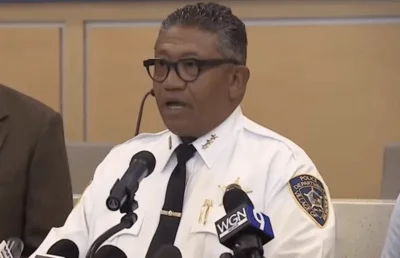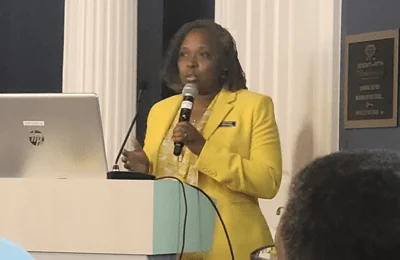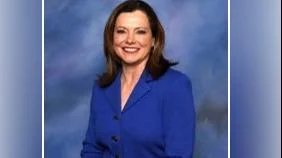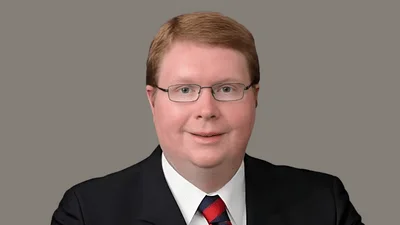Tim Brandhorst and Mary Anne Mohanraj are on the OPRF Board. | Mark Lane/Wikipedia
Tim Brandhorst and Mary Anne Mohanraj are on the OPRF Board. | Mark Lane/Wikipedia
Oak Park and River Forest High School (OPRF) leaders are promising to re-direct current school spending away from programs with predominantly white students, to replace white and Asian teachers with black and Hispanic ones, and to start sending school communications in Spanish.
The initiatives are all part of the high school’s “2028 Strategic Plan," which was revised and re-released late last month.
The plan is emphatic in its focus on these so-called "racial equity" initiatives, now “Priority 1” for OPRF between now and 2028.
“Racial equity” is a theory that, rather than focus on individual student achievement, high schools should seek to equalize outcomes by racial group, instead.
To that end, OPRF leaders argue the demands of blacks and Hispanics should take priority over whites to correct for "disparities" that cause black and Hispanic students to perform worse than whites not only academically, but behaviorially.
OPRF will "implement a comprehensive set of strategies" and a "Resource Allocation Plan" to "equitably distribute resources,” shifting white student "school funding, staff and educational programs" to benefit black and Hispanic students.
This includes replacing at least 40 white and Asian OPRF teachers with a black or Hispanic, “to reflect the diversity of our student population" as well as enrolling more black and Hispanic students in "honors and advanced courses" and by June 2026, ensuring "a majority of (black and Hispanic) parents and non-English speaking parents are satisfied or very satisfied with communications."
OPRF is 53 percent white, 20 percent black, 15 percent Hispanic and four percent Asian.
It’s faculty is 75 percent white, nine percent black, nine percent Hispanic and four percent Asian.
OPRF Black test scores- down 50 percent
OPRF test scores have fallen since the start of "racial equity" plan implementation, which started when Illinois labor union lobbyist Ralph Martire joined the school's board in 2018.
In 2023, only ten percent of black OPRF students were at grade level for math, according to the Illinois State Board of Education (ISBE). That’s down from 18 percent in 2017.
OPRF has also seen declines in math scores for white students (63 percent at grade level, down from 75 percent in 2017) and Hispanic students (40 percent, down from 49 percent).
Martire stepped down from the board in 2022, after one term. He told the Wednesday Journal that he was "particularly proud" of OPRF's "racial equity initiative."
“Now we have not only what we’re going to measure but how we’re going to measure it and what sort of initiatives the administration is going to bring to the table and they all have to be evidence based,” Martire said. “That was a big deal, no other district has that, we’ve got that.”
OPRF leaders still believe their “racial equity” initiatives will increase student performance. Their 2028 plan predicts an increase in scores for blacks by ten percent, and hispanics by four percent by 2025.
In 2022, West Cook News reported on OPRF efforts to equalize test scores among racial groups by excluding from their grading assessments variables it says disproportionally hurt the grades of black students.
In 2019, West Cook News reported on an OPRF "School Discipline Report" that said black students at the school committed rule infractions at a rate six times greater than white and Asian students. School officials attributed the difference to "racially-biased enforcement."
The high school spent $103 million in 2023, or $24,186 per student, according to ISBE.
The current OPRF School Board includes insurance agent Fred Arkin, lawyer Tim Brandhorst, supply chain consultant Graham Brisben, supply chain executive Tom Cofsky, college professor Jonathan Livingston, human resources executive Audrey Williams-Lee and erotica author Mary Anne Mohanraj.






 Alerts Sign-up
Alerts Sign-up